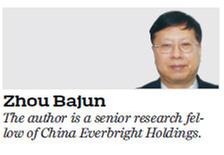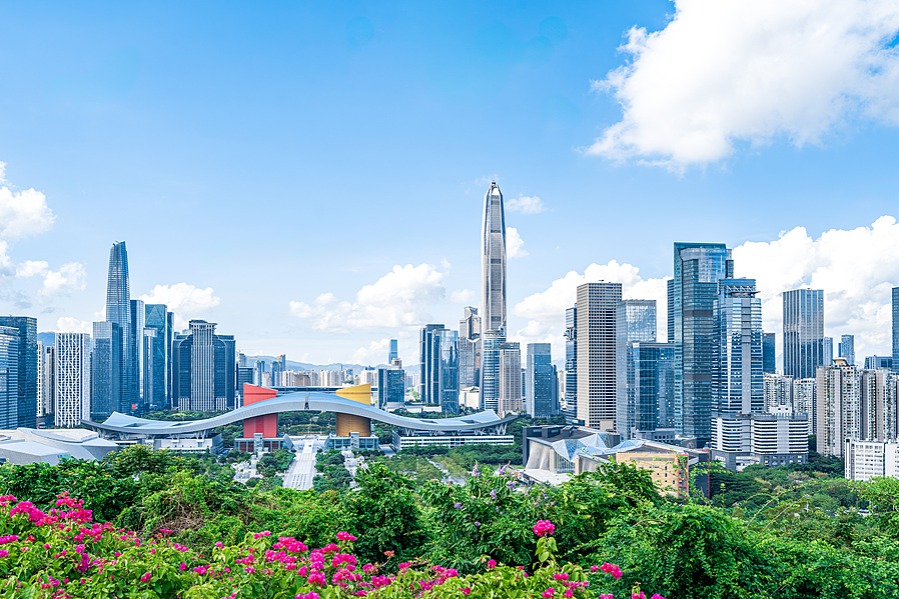SAR needs to speed up economic transformation

Zhou Bajun notes that Cosco's purchase of OOIL brings the era of HK shipping giants to a close - and highlights the dearth of replacements despite Shenzhen's successes
Orient Overseas Container Line (OOCL) and Cosco Shipping announced on July 9 that the two shipping giants had reached an agreement for Cosco and Shanghai International Port Group (SIPG) to wholly acquire OOCL's shipping arm Orient Overseas International Line (OOIL) for $6.3 billion. Some commentators say the deal has drawn an era in Hong Kong's shipping industry to a close.
Competition in the global shipping market intensifies every day. Before the OOIL buyout deal was announced a container shipping alliance between Maersk Line of Denmark and Mediterranean Shipping Company (MSC) of Switzerland was No 1 in the world. To secure its place in the global shipping market Cosco's container shipping arm has also forged an alliance with OOIL and CMA CGM China Shipping. After acquiring OOIL with SIPG, Cosco Shipping Lines is now the third-largest of its kind in the world. That is why this buyout deal serves the long-term development interests of all parties concerned.

But the deal does end an era in Hong Kong's shipping industry. In the 1970s Hong Kong's shipping market was dominated by four big companies - Sir Pao Yue-kong's World-Wide Shipping Group, Tung Chao-yung's OOCL, Tsao Wen-king's IMC Group and Chao Tsong-yea's Wah Kwong Maritime Transport Holdings. Before the sale of OOIL to Cosco and SIPG, OOCL was the only shipping giant left standing - the other three had all lost steam and faded away. Now the era of Hong Kong's shipping "big four" is finally history.
Meanwhile, among all the corporate giants that have risen to prominence in Hong Kong since the 1970s only Li Ka-shing has successfully transformed his business empire from a real-estate developer into a diversified cross-national conglomerate. For decades Hong Kong has not seen another one like Li's Hutchison Whampoa. In contrast, Hong Kong's mainland neighbor Shenzhen has become home to a number of big high-tech companies with international reach in the past two or three decades, including telecom system solution provider Huawei Technologies and internet startup Tencent. There are even more elsewhere on the mainland, with Alibaba being the most successful and well-known today. As a result many Chinese mainland business people have joined the ranks of the richest in Asia in recent years.
The reasons why the mainland could create so many big enterprises in just a decade or two, while Hong Kong made none, no doubt vary from industry to industry but, generally speaking, what held Hong Kong back has been its inability to advance economic transformation in response to globalization.
In the mid-1980s through mid-1990s much of Hong Kong's labor-intensive manufacturing companies packed up and moved to the Pearl River Delta region in Guangdong but little was done to replace them with knowledge-based enterprises in high-tech and innovative industries. In the past 20 years or so traditional industries and sectors have been dominated by a number of big companies, such as in real estate and banking, but no fresh industry has grown big enough to give Hong Kong a new corporate giant or two.
Finance is still one of Hong Kong's pillar industries but the lack of fresh demands for financial services left the banking industry with more savings in local and US currencies than loans. Besides HSBC, which has become a bona fide international corporate giant by building a global presence, none of the other big banks is even close in terms of business scale or market share. The small and medium-sized ones can barely keep themselves afloat.
Yuan trade is a new growth point in Hong Kong's banking industry but renminbi use is still very limited in the city, partly because it is not freely convertible, unlike the HK dollar, and the renminbi circulating in Hong Kong are not allowed to flow back to the mainland at will. That is why none of the local banks has been able to rely mainly on yuan trade for business growth.
All said, Hong Kong must speed up its transformation into a knowledge-intensive economy if it wants to create new corporate giants. And it must not limit its sights to within its own boundaries. In this respect Li's Hutchison has set a worthy example in going international. However, amid the profound ground shift happening to the global economic, financial and political status quo, Hong Kong must be mindful of the timing and direction of every step it takes.
President Xi Jinping said in his speech at the ceremony marking the 20th anniversary of the establishment of the Hong Kong Special Administrative Region on July 1: "The nation's sustained fast development in recent years has offered Hong Kong numerous opportunities, inexhaustible power and immense space for its own development." The central government supports Hong Kong in participating in the Belt and Road Initiative and development of the Guangdong-Hong Kong-Macao Greater Bay Area city cluster. Hong Kong has no excuse not to take advantage of those opportunities to advance its economic transformation and nurture new international corporate giants.
Hong Kong's existing big real-estate developers should take this opportunity to diversify their business scope sooner rather than later, or Hong Kong's inevitable transformation into a knowledge-driven economy will force them to choose between reinventing themselves and falling by the wayside.
In the foreseeable future, new means of growth such as artificial intelligence, fintech and Internet Plus will revolutionize business operations as well as people's daily lives, resulting in the emergence of new jobs at the expense of traditional ones and even enterprises not big enough to survive. Either through mergers and acquisitions or closures, Hong Kong's corporate landscape will change in the years to come.
(HK Edition 07/20/2017 page8)
Today's Top News
- Dutch govt urged to mend chip dispute
- Macao's heritage sites hold special appeal for games
- China tackles N2O emissions, leading change
- AI should build a future where technology serves people
- Japan bears blame for worsening China ties
- People-centered outlook applauded






























